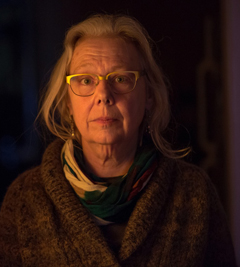It’s time for Toronto to step up: Let’s become a UNAIDS Fast-Track City

The past few years have been a rollercoaster for those of us most impacted by HIV. The use of pre-exposure prophylaxis (PrEP) by people who are HIV-negative has gone from being discredited and shamed to become one of the keystones of a renewed and revitalized push to “end the HIV epidemic”. The other life-changing piece of research is the landmark PARTNER study that showed us, once and for all, that the sexual transmission of HIV does not occur in people whose viral loads are undetectable. The joyous global uptake of the U=U message has been nothing short of inspirational.
Effective modern treatment and PrEP have changed how we can now think of HIV, and how we can think about our lives. We can now imagine a world where people with HIV live long, healthy lives and HIV transmission is a rare event. We can imagine sex as something that unifies us, rather than divides us along serostatus lines. We can imagine a time for healing. If there is anything that could mitigate the devastation of the early years of the AIDS epidemic, it might be a community-led push to end the epidemic within the next decade.
This may sound like an HIV prevention initiative. And it is. But the use of treatment as prevention sends out a powerful message about people living with HIV. It is an antidote to the stigma, shame and fear that has accompanied us. It announces new, previously unthinkable possibilities in our social and sexual relationships. It gives us more initiative to start treatment and stay adherent. These are the reasons, as an HIV-positive woman, that I agreed to become the co-chair of Toronto’s Fast-Track City Initiative.
Encouraged by the ambitious 90-90-90 targets set by UNAIDS in 2014, over 250 cities around the world – including Montreal, New York, London, San Francisco and Paris – have launched comprehensive plans to end the HIV epidemic, and many have been able to dramatically reduce the number of new HIV infections.
Fast-track cities are dedicated to rethink how they can deliver HIV services in order to reach the UNAIDS targets of 90% of people with HIV diagnosed; 90% of people diagnosed on treatment and 90% of people on treatment virally suppressed. Some cities, like London and Melbourne, have already exceeded these targets. I believe it’s time for Toronto to step up and join their ranks.
Community members, AIDS service organizations, government, researchers, healthcare workers and others involved in HIV prevention, care and support in Toronto have come together to champion a Fast-Track approach in Toronto. Our plan is to:
- Drive down new transmissions by increasing access to the full range of prevention options, including PrEP, post-exposure prophylaxis (PEP), mental health assessment services and substance use programs;
- Increase access to HIV testing by launching rapid, innovative and accessible testing programs, including home testing;
- Improve linkage and retention of people with HIV in care by reducing the time between diagnosis, initiation of treatment and viral suppression and by developing ways to identify when a patient with HIV may be lost to care or struggling with adherence, and provide supports;
- Improve the health and well-being of people living with HIV, with a particular focus on aging and HIV;
- Develop a high-profile anti-stigma campaign, which raises public awareness of the progress in HIV prevention and care.
On Thursday, November 1 at 5:30 p.m. at the 519 Church Street Community Centre, members of the Toronto Fast-Track City Initiative will meet with the community, talk about our work and hear what it will take to make this initiative a success. If you can’t be there, you can follow the community conversation on our website.
Darien Taylor has been living with HIV for approximately 30 years and has been active in the HIV community throughout this time. Now retired, she was the director of program delivery at CATIE for eight years. She continues to be active in the HIV sector as co-chair of Toronto’s Fast-Track Cities Initiative and as a community advisory board member of CANCURE, a research program aiming to find a cure for HIV.
